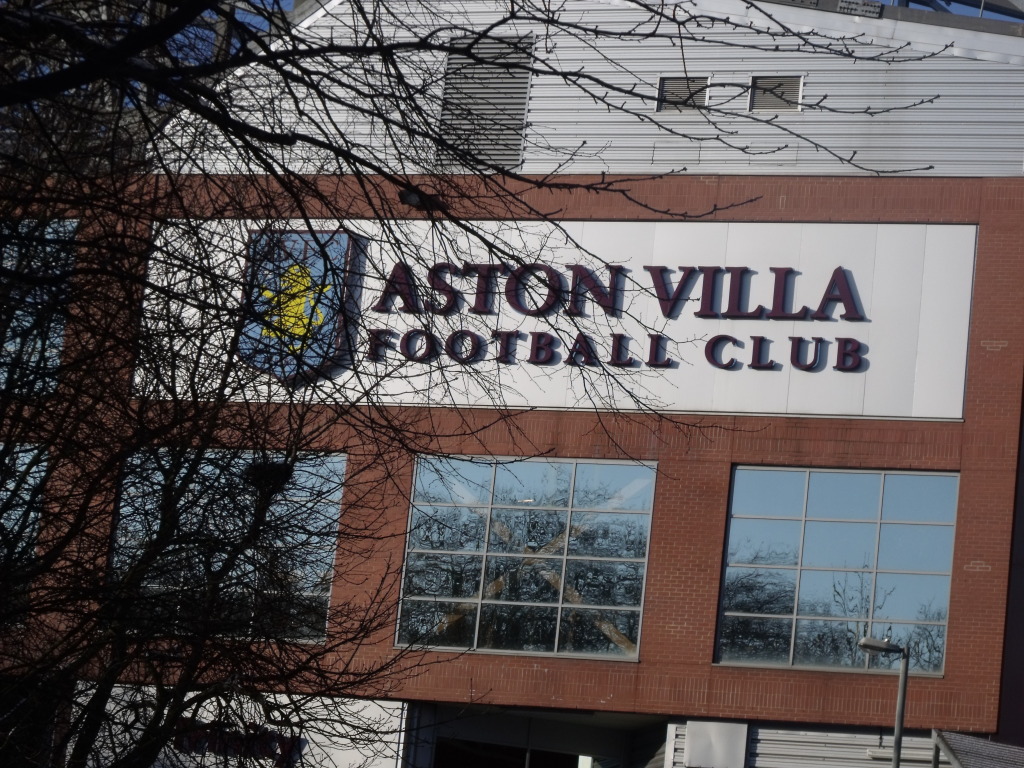Dave Woodhall pays tribute to a Villa notable.
A soldier carried a gold cap in a glass case to present to Wayne Rooney as his children crawled around the Wembley pitch. No sentence could describe better the utter banality of an England international; the only surprise was that 82,000 people braved pocket-draining expense and Friday night traffic to attend the match.
The main casualty of international weekend (or week, as it’s evolved into) is of course the domestic programme. This was of particular significance to Villa, who now have another week’s wait to extend our unbeaten run to two games. Also of significance was an inevitable injury to Ron Vlaar while with the Dutch side. If he played for any other club he’d be fit by next weekend; he’ll probably be playing for us some time in January.
Vlaar’s new deal is more of a dilemma than might otherwise appear. Do Villa offer him a new deal and gamble on having an increasingly injury-prone player on the books for four more years? Cut their losses and sell in January for a fraction of the player’s true value? Or risk losing him for nothing in the summer? Whatever happens will be an unpopular move in some quarters.
The other main Villa news last week was the sad death of Sir William Dugdale, former club chairman amongst many other things, at the age of 92. Businessman, politician, colliery owner, Grand National rider, round the world pilot, decorated war hero, High Sheriff of Warwickshire, uncle of David Cameron and direct descendant of William the Conqueror, Sir William’s was the definition of a life well lived.
He joined the Villa board in 1973, becoming chairman two years later on Doug Ellis’s resignation. With Sir William in the chair, Ron Saunders was able to build his second team, which won the League Cup in 1977, and begin to lay the foundations for his all-conquering third. This was at the time when football club directors, even at the biggest clubs, were usually local businessmen and worthies, unpaid and regarding the job as a matter of civic duty.
Sir William later said that the success of 1977 was a two-edged sword in that it enabled the club to become financially stable again for the first time since before the takeover of 1968 and with Villa’s future secured the directors began to lose their unity. Whether or not this was true, he resigned both the chair and his directorship in 1978, reportedly in protest at the way in which the club was being increasingly dominated by Ellis and the largest shareholder, Ron Bendall. Ironically, these two were to fall out within months and the last significant act that Sir William did for Villa was to throw his significant shareholding behind Bendall at the 1979 EGM which saw Ellis forced off the board.
Sir William remained a regular at Villa Park for many years afterwards and, for good or ill, is the reason why the Prime Minister now claims to be a Villa fan. A greater contrast to Wayne Rooney you could never imagine. Truly, we shall not see his like again.
We won’t see Villa on Saturday either, because thanks to another abomination of modern football our game has been shifted for TV. Southampton at home on Monday night could be interesting in more ways than one. It’ll be a low gate, with the number in attendance even lower. That means the proportion of ardent Villa supporters to day trippers will be higher than usual so the potential for mass dissent will be much greater. With it also being the only match of the night the nation’s media will be watching so should the result go against us the crowd’s reaction, and in turn the coverage of it, could be interesting.
